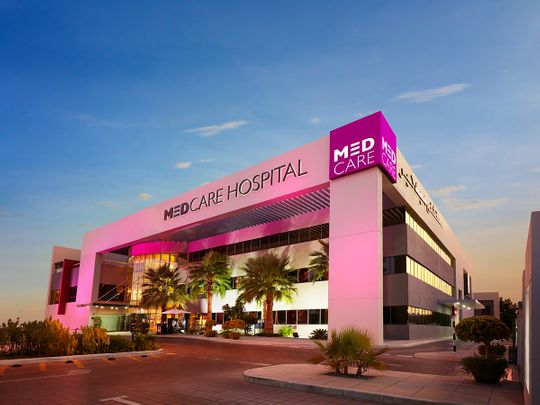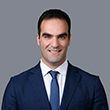
Every year, about 17.9 million people die as a result of cardiovascular diseases. According to the World Health Organisation, four out of five such deaths are due to heart attacks and strokes. On the occasion of World Heart Day, Reach by Gulf News sits down with cardiac experts at Medcare Hospital Al Safa to learn more about how to promote heart health and prevent cardiovascular diseases.
Here’re some excerpts from the interviews with the doctors.
Cardiovascular diseases are the leading cause of death in the UAE. Why is that?
There are many reasons cardiovascular diseases are the leading cause of death in the UAE. The main reason remains the sedentary lifestyle followed by the general population. While most people are aware of the risk factors of heart disease, they still do not pay any attention to them. Lack of physical exercise and increased consumption of salty and processed foods can be blamed for the rise of heart disease in the UAE.
What's the most common type of cardiovascular disease in the UAE? Who are at risk?
Coronary artery disease (CAD) caused by a blockage or narrowing due to cholesterol deposits is the most common type of heart disease affecting the people of UAE. The left coronary artery is the one most commonly affected. A family history of coronary artery disease and overweight people are at a higher risk of developing CAD.
Do women have the same risk for heart diseases as men?
Heart disease does not discriminate and both men and women have the same risk factors. However, the weight that these risk factors carry is different among males and females. Women generally suffer from heart disease at a much older age than men, and the symptoms are overall much more severe too. Women are also more likely to die from cardiac incidents than men.
What are the signs and symptoms that people should watch out for?
Chest pain and discomfort are the most common symptoms to look out for. If you frequently experience chest pain, then your heart might be in danger. Some of the other symptoms to be on the lookout for are neck and jaw pain, pain and numbness in the arms and legs, and shortness of breath.
What should you do if you feel like you are having a heart attack?
Symptoms of a heart attack include sudden onset of chest discomfort, chest pain, jaw pain and shortness of breath. It is important to call an ambulance immediately if you feel any of these aforementioned symptoms. Lack of blood supply to the heart is the main cause of a heart attack, and time is muscle, so every minute of delay in seeking urgent medical care can be life-threatening. To decrease the risk of fatality, immediate medical intervention is required.
How is Medcare Hospital Al Safa equipped to deal with the diagnosis and treatment of complex heart diseases?
Medcare Hospital Al Safa has state-of-the-art cardiac cath lab in addition to an experienced team of cardiologists, cardiac physiologists and nursing staff. Emergency physicians promptly identify patients with suspected heart attacks and immediately refer these patients to cardiologists for consideration of emergency coronary angiography, which is a catheter-based assessment of the coronary arteries. If a blocked coronary artery is identified, then a procedure called percutaneous coronary intervention (PCI) is performed to unblock the artery. This usually involves the use of balloons to open the blocked artery followed by the placement of a stent to keep the artery open. PCI is available 24/7 at Medcare. Post-procedure care is offered in a dedicated coronary care unit.
Prevention is the best way to tackle CVDs. How can we prevent them?
Focus on the following modifiable risk factors: control of blood pressure, blood sugar, cholesterol and maintain a healthy weight. Avoid smoking, make healthy dietary choices and exercise regularly.
To book a consultation with the experts at Medcare, call 800MEDCARE or visit Medcare.ae






